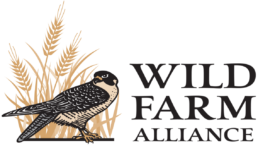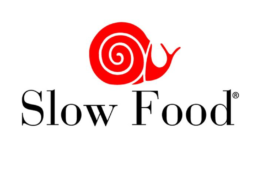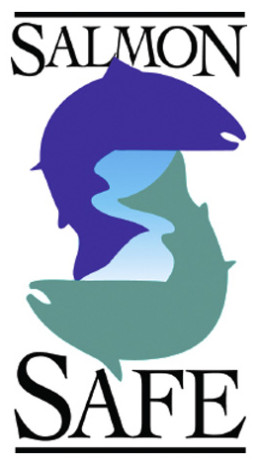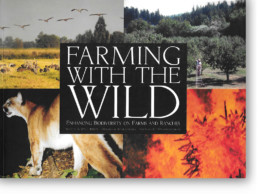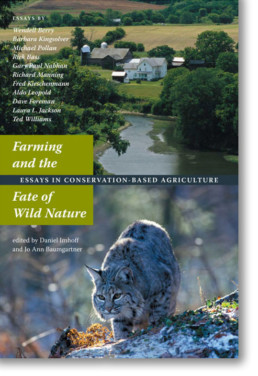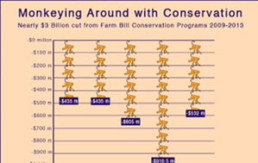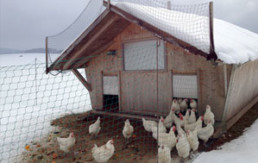“Farming with the Wild” is our way of defining “sustainable agriculture.” This bold vision for food production includes free-flowing watersheds and interconnected habitat through farmlands. It favors pasture-based livestock operations and farming methods that work with, rather than against, wild nature. As Aldo Leopold wrote, “a good farm is one where wild plants and animals lose acreage without losing existence.”
Books
We spent three years traveling around North America searching to answer two important questions. How wild can a farm be and still remain economically productive? How much agriculture can take place adjacent to natural habitat and still protect wide ranging species and critical ecological functions? This beautiful book connects food systems to the ecosystems essential to the survival of humans and all living things.
Winner of 2004 independent publishers book awards in the category mostly likely to save the planets.
Our first book on conservation-based agriculture, Farming with the Wild, consisted primarily of case studies illustrated with lots of photographs. Farming and the Fate of Wild Nature is a collection of essays that built the philosophical and scientific case for that previous book. Outstanding writers like Aldo Leopold, Wendell Berry and Barbara Kingsolver tell us that the only sustainable future lies in farming with, rather than against, wild nature. Edited by Dan Imhoff and Jo Ann Baumgartner.
Videos
Essays
HOW You Can Help
-
Eat Consciously.
Seek local and in season, look for Organic and GMO free certified products and make sure animal products are humanely pasture raised.
-
Consider the natural habitat of agricultural spaces.
Clean air and water, native species of plants, birds, bats, bees, and even predators that can be incorporated and utilized in farming practices while protecting the landscape.
-
Support A Farm-Based Conservation Economy.
With broad diversity of domestic and native species, clean air ad water, healthy fertile soil, pollinators and beneficial insects, birds and bats, year-round plant cover for soil conservation.
-
Support “predator-friendly”.
Producers that use guard animals and other management techniques to coexist with wild species that might threaten livestock.
-
Support shade grown coffee.
That provides critical migratory bird habitat and Salmon. Safe products that work with landowners to enhance water quality for endangered fish in the United State’s Pacific Northwest.
Click here to print a complete list of actions you can take in your everyday life.
COLLABORATORS
